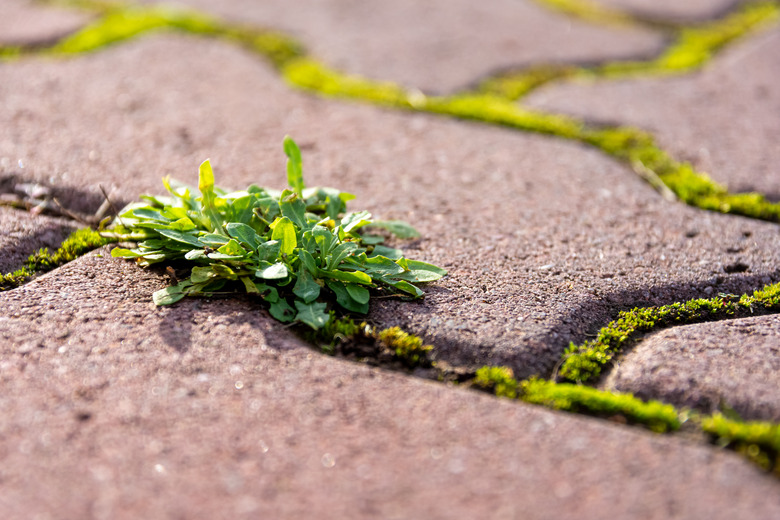Can You Use Bleach As A Weed Killer?
We may receive a commission on purchases made from links.
Garden weeds are a lot like the ghosts of baseball players in the movie Field of Dreams. If you build it, they will come. One way to get rid of these unwanted garden pests is to use bleach as a weed killer. Bleach is effective, but it might be a little too good at killing plants, making it important to use it carefully and sparingly.
How Bleach Kills Weeds
How Bleach Kills Weeds
Bleach is an acidic chemical, which is why it works to kill weeds. It works by lowering the pH level in the soil until it's so acidic that nothing can grow there. Any weeds or other plants living in the treated area will die since the soil becomes an inhospitable environment.
Because it works so deeply into the soil, bleach will kill weeds you have now and prevent new weeds for several weeks or longer. This makes it a good way to kill weeds creeping up between the cracks in stone or brick walkways. Bleach is tricky to use in flower beds, however, and this practice is generally not recommended in open beds and lawns. It's far too easy to accidentally get bleach where you don't want it in these areas, which can cause trouble when you do want grass or flowers to grow in the treated area.
Check the Legality of Bleach
Check the Legality of Bleach
Bleach is a toxic chemical, and it's not good for living things. When you use it in your garden, it's crucial to remember that you're pouring toxins into the earth. Bleach is not an environmentally friendly approach to killing weeds, so you need to behave responsibly if you use it.
Bleach can run off into groundwater or neighboring wells. It can also make its way to streams and rivers, potentially killing both plants and animals. Before you use it, check with your local government office or agricultural extension to verify that using bleach as a weed killer is legal in your area. In many places, it's not.
Even if you can use bleach legally, do so responsibly. Make sure the runoff from your garden won't contaminate someone else's garden or find its way into nearby sources of drinking water.
Apply the Bleach
Apply the Bleach
Once you've gotten a green light from the law and have verified that you won't be causing any problems, it's time to apply the bleach. Start by making sure you're playing it safe. Throw on some safety glasses and rubber gloves before you start working with the bleach. It's also a good idea to make sure there is no rain in the forecast for the next few days.
Once you're suited up, you can fill a weed sprayer with bleach. Some gardeners use straight bleach, while others dilute it in some water. Ideally, you should start by diluting 1 ounce of bleach in 16 ounces of water. If this mixture proves ineffective, you can always try again with more bleach and less water. It's best to use as little bleach as possible.
Make sure you spray carefully when working with bleach. It will kill your weeds, but it will also kill your grass, your roses and any other plant life with which it comes in contact.
Wait Safely for Bleach to Work
Wait Safely for Bleach to Work
A bleach spray will usually kill all the weeds in about two days, at which time you can easily pluck them out of the soil. While you're waiting for the bleach to work, it's important to keep children and pets away from the treated area. It's also a good idea to keep wild animals away from the area if you can do so practically. This may involve laying a large tarp over the treated area or building a temporary fence from screening or snow fencing.
Try Other Weed Killers
Try Other Weed Killers
If you wait two days and your bleach treatment doesn't work, you can repeat the bleach treatment or try something new. Vinegar, salt and even vodka are all somewhat effective weed killers, and they're far less toxic than bleach. Some gardeners even swear by lemon juice, while others advise laying four layers of old newspaper over the weeds. If you do this in your planting beds, the paper will block weeds and then decompose on its own.
If all else fails, you can also consider buying an herbicide at your local garden center. Store-bought herbicides also contain chemicals, but they're designed to be used safely and with minimal detrimental environmental impact. As long as you follow the safety instructions and guidelines on the label, a commercial herbicide can prove both safe and effective.
